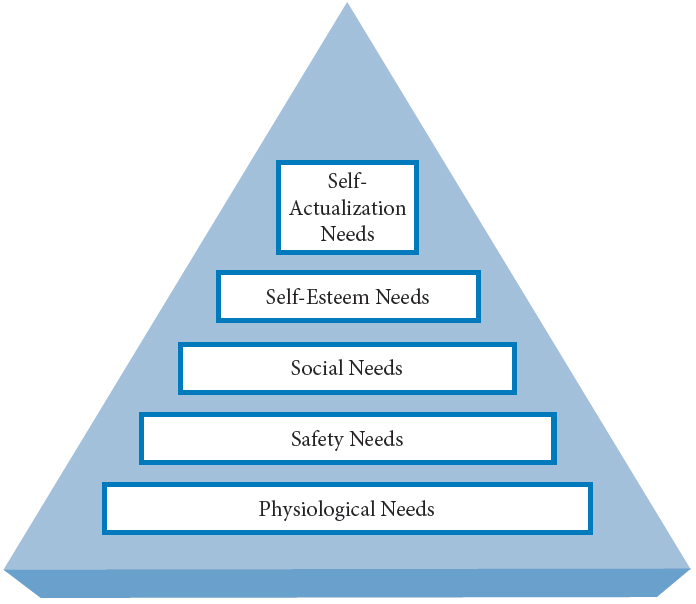Target Listeners’ Needs
Printed Page 192
Audience members are motivated to act on the basis of their needs; thus, one way to persuade listeners is to point to some need they want fulfilled and then give them a way to fulfill it. According to psychologist Abraham Maslow’s classic hierarchy of needs (see Figure 24.1), each of us has a set of basic needs ranging from essential, life-sustaining ones to less critical, self-improvement ones. Our needs at the lower, essential levels (physiological and safety needs) must be fulfilled before the higher levels (social, self-esteem, and self-actualization needs) become important and motivating. Using Maslow’s hierarchy to persuade your listeners to wear seat belts, for example, you would appeal to their need for safety. Critics of this approach suggest that we may be driven as much by wants as by needs; nevertheless, the theory points to the fact that successful appeals depend on understanding what motivates the audience.6 Following are Maslow’s five basic needs, along with suggested actions a speaker can take to appeal to them.

| NEED | SPEECH ACTION |
| Physiological needs (to have access to basic sustenance, including food, water, and air) |
|
| Safety needs (to feel protected and secure) |
|
| Social needs (to find acceptance; to have lasting, meaningful relationships) |
|
| Self-esteem needs (to feel good about ourselves; self-worth) |
|
| Self-actualization needs (to achieve goals; to reach our highest potential) |
|
Quick Tip
Show Them the Reward
In order for change to endure, listeners must be convinced they will be rewarded in some way. For example, to persuade people to lose weight and keep it off, you must make them believe that they will be healthier and happier if they do so. Skillful persuaders motivate their listeners to help themselves.